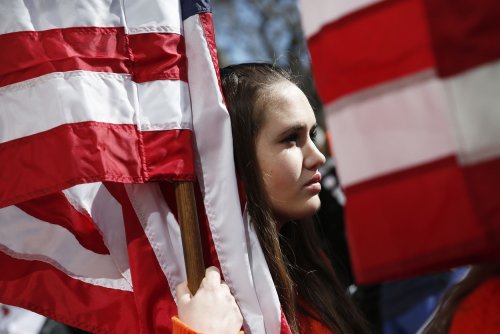WASHINGTON, Aug. 4 (UPI) -- In his remarks at the just concluded U.S.-China Strategic and Economic Dialogue, U.S. President Barack Obama set the tone for the first-ever such meeting, saying the relationship between the two "will shape the 21st century."
Carefully crafted words to characterize where the two countries, with diametrically opposed political systems, have arrived since they established diplomatic ties 30 years ago, notwithstanding their ever-present differences.
Today, the United States, the largest economy in the world, is the biggest debtor to the world's most authoritarian Communist regime that is also the world's third-largest economy, holding more than $800 billion of U.S. debt and the largest reserves of foreign exchange of more than $2 trillion, much of it in U.S. dollars.
The main reason the two even came together for such a high-level conference in the midst of the most severe global financial crisis and U.S. recession is just that -- they can no longer do without the other in the midst of major crises from global financial restructuring, balanced global trade to world peace. It is no surprise then the two have come to be called the "Group of Two" that are also the worst emitters of greenhouse gases.
As the U.S. Treasury Department put it, the S&E dialogue was upgraded by President Obama and his Chinese counterpart Hu Jintao to make it the center of U.S.-China relations and make it "an ongoing and intensive mechanism for addressing the challenges and opportunities that the United States and China" face on a wide range of issues.
The notable feature of the two-day dialogue in Washington was that there was no contentious debate on critical issues such as the burgeoning U.S. deficit, the stability of the U.S. dollar, North Korea and Iran. The United States also avoided any detailed discussions on human rights, a touchy issue with China.
Chinese experts told China's Global Times the two sides displayed greater maturity but made no significant breakthroughs except in new energy cooperation.
"It is undeniable that the U.S. has changed its attitude toward China, which is a positive sign," one expert told the newspaper.
Professor Shi Yinhong at Renmin University of China said both countries seemed more pragmatic by trying to "downplay those issues that they can't find feasible solutions for."
Professor Chen Baosen at the Chinese Academy of Social Sciences said the United States was not as arrogant as before on such issues as raising the value of the yuan against the dollar.
Agreeing, another expert said: "The first thing the U.S. has to do is maintain the value of the dollar and dollar-based assets. The appreciation of the (yuan) would make the dollar depreciate more, which is what the U.S. is unwilling to see."
"The increasing interconnection of the two economies means that neither side can get its job done easily without the support and cooperation of the other," China Daily said.
Besides agreeing to cooperate more on political, economic and environmental questions, the Voice of America quoted U.S. Secretary of State Hillary Clinton as saying China shared U.S. concerns about prospects of a nuclear-powered Iran.
"The potential for de-stabilizing the Middle East and Gulf is viewed similarly by the Chinese as it is by us, if Iran, in its pursuit, triggers an arms race," she said.
U.S. Treasury Secretary Timothy Geithner said Vice Premier Wang Qishan promised China would step up domestic economic demand to reduce reliance on exports. In return, Geithner promised to cut U.S. deficits, which along with a declining dollar have raised Chinese concerns about their dollar assets.
But Zhou Xiaochuan, governor of China's central bank, also insisted the world's emerging and developing economies including China should have more voice in international financial institutions.
So what did the dialogue accomplish?
Xinhua cited a piece in the Wall Street Journal written by Clinton and Geithner that "few global problems can be solved by the U.S. or China alone, and few can be solved without the U.S. and China together."
Pieter Bottelier, professor of China Studies at the Johns Hopkins School of Advanced International Studies, was quoted as telling Xinhua the current crisis has reshaped the world, in that "it has given the Chinese more international clout and greater self-confidence, especially in the economic and financial arena."




